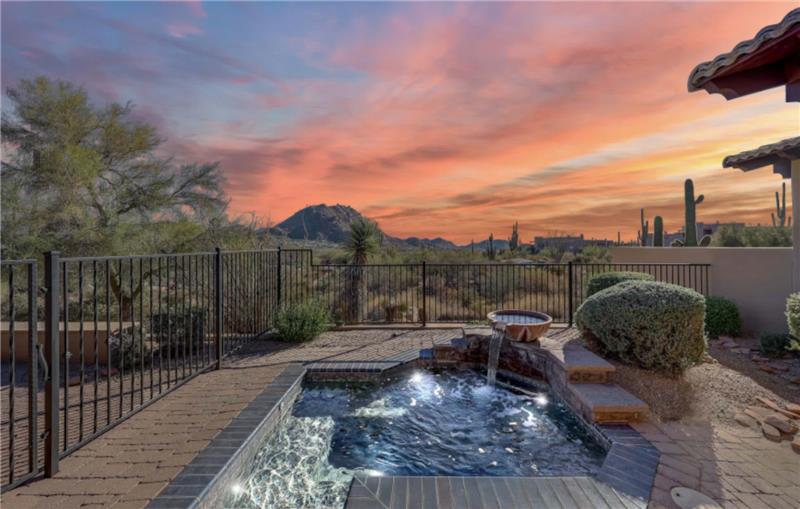Understanding Types of Luxury Real Estate Ownership
Sky-high skyscrapers, enormous mansions, historic estates, top-notch beachfront properties - luxurious estates come in all shapes and sizes. But did you know that there are different types of ownership you should be aware of when investing in luxury real estate? In this guide, we'll dig deep into the different forms of luxury real estate ownership, its benefits, drawbacks, and the considerations that buyers must factor in when making a choice. Here's what you can expect:

Introduction
Step into the glittering world of luxury real estate and you'll find a mesmerizing array of plush skyscrapers, grand historic estates, and lavish beachfront properties. Luxury real estate operates on a different playing field, representing not only convergence of opulence and comfort, but also a substantial investment opportunity.
But here's the real deal: owning a luxury property isn't just about plopping down cash and signing paperwork. It's essential that any savvy investor understands the different types of ownership associated with this elite property sector. Why, you ask? The ownership type dictates not only your rights and responsibilities but can also impact your financial future.
Whether full, co, or timeshare ownership, knowing the 'what' and 'how' of each model helps you make informed decisions and align your selection with your investment goals. In this intro, we're laying the foundation; buckle up as we delve into the alluring and complex world of luxury real estate ownership in the coming sections. Be ready to explore, analyse and, ultimately, unravel the best ownership option for your luxury property investment.
Full Ownership: What Does It Mean?
Full ownership, in the simplest terms, means running the show yourself. In the luxury real estate sector, this means gaining total control over your property.
Advantages of Full Ownership
As the master of your opulent estate, you hold the power:
- You hold the deed
- You decide property management
- The sky’s the limit for renovations, alterations, or restorations
The ownership rights of your beach estate or luxury historic home rest entirely in your hands. The benefits are indeed captivating: privacy, autonomy, and complete freedom- it can range from gold leaf decking the interiors to renting out the property as a steady source of income.
Disadvantages of Full Ownership
However, owning a luxury property isn't all roses. With great power comes great responsibility - and potential drawbacks.
- You face the financial challenges that come with the property, such as taxes, insurance, and maintenance.
- Luxury properties often mean a longer list of expenses- the Italian marble, private tennis court maintenance, and significant property taxes on multi-million dollar estates.
- Real estate markets can also be unpredictable- if values decrease, the loss is yours to bear.
Full ownership of luxury real estate is perfect for those seeking privacy, control, and their own slice of paradise. However, it's a long-term commitment that requires substantial financial support and the ability to ride out possible market storms.
Ultimately, owning a part of luxury real estate isn’t just about power and prestige. It demands comprehension of the part you need to play as the exclusive custodian of your luxurious dwelling.
Co-ownership
First off, what's co-ownership? Essentially, it's when two or more individuals have rights to the same property. There are two main types – joint tenancy and tenancy in common. In joint tenancy, all owners have an equal right to the property. If one owner passes away, this ownership portion would automatically pass to the surviving owner(s).
In contrast, tenancy in common is a bit more flexible. Each owner has a distinct share, which doesn't have to be equal. Also, unlike joint tenancy, an owner's share in the property can be passed on to beneficiaries upon the owner's demise, instead of automatically reverting to the remaining co-owners.
Now, let's look at this setup's pros and cons - specifically in the luxe real estate scenario. On the plus side, buying a piece of luxury real estate as co-owners can open doors to highly coveted properties that might be financially challenging to own individually. The costs of purchase, maintenance, and eventual selling will be shared.
Conversely, there are downsides to ponder too. For instance, without a well-defined and thorough agreement, disputes related to the property's use or costs can arise amongst the co-owners. What if one owner wants to sell and the other doesn't? What if one owner uses the property more frequently than others do? Moreover, financing the purchase can be more complex as lenders may view co-ownership as higher risk.
In essence, embarking on a co-ownership journey in luxury real estate is all about balance. It can pave the way towards your dream property, but it pays to remember that it's a path best tread with careful planning, clear agreements, and preferably, a trusted co-owner.

Understanding Timeshare Ownership
Timeshare ownership, a concept within luxury real estate, is the idea of owning a specific timeframe in a property, often a resort-style condominium unit.
In simpler terms, you purchase the rights to use the property for a predetermined period each year, usually spanning one or two weeks. Imagine it as a perpetual reservation at a luxurious hotel for your annual vacation – with the twist that you're an owner. Intriguing, isn't it?
{{assessment-cta}}
The Pros and Cons of Timeshare Ownership
It's important to understand the potential benefits and challenges associated with timeshares.
Pros
- Cost-Efficiency: Timeshares can be a cost-effective way to have a vacation home without the full cost of property ownership.
- Savings on Hotel Costs: Essentially, you own your vacation lodging, saving regular hotel costs.
- Potential Flexibility: In some cases, you might be able to exchange your timeshare for another in a different location, depending on your contract terms.
Cons
- Reselling Difficulties: Timeshares can be tricky to resell and may even depreciate over time—unlike traditional real estate investments.
- Maintenance Responsibilities: You'll be accountable for routine maintenance, repair costs, and annual fees, irrespective of whether you're using the property.
- Limited Flexibility: Generally, you're locked into the same location and time each year, limiting variation in your vacation experiences.
In conclusion, timeshare ownership can be an appealing choice for those who enjoy vacationing in the same spot each year and wish to sidestep hotel costs. However, the potential pitfalls mean that careful consideration and consultation with a real estate advisor are essential before committing.
Read more about it here: The Pros and Cons of Timeshare
Leasehold Ownership
Switching gears, let's explore a rather distinctive form of real estate ownership: leasehold. If you're scratching your head and thinking, "Wait, leasing? Isn't that just renting, but fancier?" Well, not quite.
Leasehold ownership, particularly in the luxe world of real estate, can be seen as, let's say, "renting on steroids". On a surface level, yes, you are renting - but not in the sense of grabbing a temporary abode. Instead, you’re securing the rights to inhabit and use a specific luxury property for a considerable period, sane enough to rival a lifespan. In fact, these leases often last for years and can extend up to a whopping 99 years. This gives you a semblance of ownership - without technically owning the land.
Beneath the swanky suits and grandeur, leasehold ownership harbors a few perks up its sleeve. For one, it's cost-effective given that it's usually cheaper than full ownership, making it an accessible entry point for property enthusiasts into the world of luxury real estate. It also provides the leaseholder with a somewhat minimalistic approach to property ownership, as most of the land taxes and maintenance tasks often fall on the landlord's shoulders, sparing you the hefty burdens. What's more, shorter-term leaseholds can be ideal for those who love constant change of scenery.
But don't toss your champagne glasses just yet. This ownership style has its fair share of downsides. Chief among these is that, unlike full ownership, you won't own the actual asset, meaning you won’t experience potential capital appreciation of the property. Secondly, renewing the lease can sometimes be a bumpy ride involving negotiation, legal agreements and, sometimes, a bit of monetary allocation. Lastly, the closer the lease gets to expiring, the less valuable the property typically becomes. Ergo, sell-by-dates.
It’s all a matter of perspective, really. In a leasehold agreement, it boils down to enduring the bitter so you can savor the sweet, or vice versa. As with other forms of luxury property ownership, the choice is yours to make.
Fractional Ownership
Fractional ownership is another unique form of luxury real estate ownership that may intrigue buyers attracted to the good life but simultaneously mindful of practical considerations. In essence, fractional ownership is a concept where several parties collectively own a piece of luxury real estate. Unlike co-ownership, however, fractional ownership allows access to multiple high-end properties distributed around the globe.
This form of ownership is a collaborative investment strategy where each owner holds a fraction of the property. Here, the homeowners share the costs, as well as the use of property, scheduling specific periods to prevent overlaps. Think of it as a souped-up timeshare of sorts, offering the possibility of jet-setting to planned vacations in different luxurious properties every year.
One of the significant advantages of fractional ownership is, of course, diversification. It opens doors to a range of opulent properties in various locations, something a single property investment can't offer. It's essentially getting a slice of multiple decadent pies. It allows owners to have their luxury getaways without shouldering the hefty costs and responsibilities that come with full ownership.
However, as heavenly as this arrangement may sound, there are potential pitfalls. One downside is the lack of control. Owners are bound by the usage rules set up by management, which could mean potential conflicts when scheduling or defining the terms of use. Furthermore, as with any cooperative setup, communication and consensus are essential but not always easy to achieve.
Another potential disadvantage lies in the complexities of reselling fractional shares. The market pool for buyers interested in such specific investments is relatively small. Plus, unlike outright ownership, the return on investment usually isn't immediate but manifests more as a long-term resale value.
In short, while fractional ownership offers the luxury lifestyle's charms with less financial burden, it comes with constraints and considerations not found in other forms of real estate ownership. It serves a specific type of investor - one open to shared decision-making and content with the trade-off between variety and control.
Condo Ownership
Condo ownership, or owning a condominium, is another unique layer in the realm of luxury real estate ownership. It is a type of living space which is similar to apartments but is independently sellable and therefore regarded as real estate. When you own a condo in a luxury setting, it usually means you own an individual unit within a larger building or community of buildings.
One of the defining features of condo ownership is that you also possess a shared type of ownership in the common areas of the community, such as the pool, gym, park, and other amenities. These shared spaces, jointly owned by all condo dwellers, introduce an element of community living not seen in other types of luxury real estate ownership.
The benefits of owning a luxury condo can be significant. First and foremost, you get to enjoy the high-end amenities typically associated with luxury living without bearing the sole responsibility for their maintenance. These amenities often include things like security services, concierge, fitness centres, and elegant landscaping. It's also worth mentioning that luxurious condos often come with prime locations - offering splendid views and proximity to desirable city spots.
But condo ownership is not without its challenges. The shared nature of condo communities means that owners are usually subject to Homeowner Association (HOA) fees, which can be substantial in the luxury sector. These fees cover the maintenance of common areas and other shared amenities. Furthermore, you'll often have less privacy than you would with other types of ownership due to the close proximity of your neighbors.
Another noteworthy aspect is that condos, especially in high-demand areas, can appreciate significantly, offering a great return on investment. However, it's important to consider potential market volatility or economic downturns, which can impact condo values.
In summary, luxury condo ownership offers a blend of high-quality living with shared amenities and a sense of community. However, it does come with certain challenges, including HOA fees and potential market risks. Just as with other types of luxury real estate ownership, understanding the specifics of condo living is crucial before making an investment decision.
Conclusion
As we have journeyed through the labyrinth of luxury real estate ownership types, one thing has become crystal clear: no one form of ownership is a one-size-fits-all solution. In fact, each style comes with its own unique blend of benefits and drawbacks, from full ownership, which boasts total control but demands steep costs, to co-ownership, which dampens expenses but requires compromise. There's the timeshare ownership, perfect for occasional luxury but limiting in terms of time. Leasehold ownership may seem less committed, but the property's control remains with the landlord. Fractional ownership proposes a viable solution to invest in high-end properties in moderation, while condo ownership adds the advantage of shared maintenance costs, albeit with possible restrictions.
Navigating these different ownership types in the sophisticated market of luxury real estate can appear baffling at first. However, armed with knowledge, potential buyers can make an informed investment, one that suits their conditions perfectly. Remember, understanding and considering these types of ownership is not only an initial step but a continuous process in your luxury real estate investment journey.
In advancing through this carefully woven fabric of luxury real estate ownership, your best compass, more often than not, would be professional advice tailored to your unique situation. Real estate agents, tax advisors, and legal experts can provide invaluable insights into the local market and laws, and assist in choosing the right type of luxury real estate ownership that aligns with your goals.
In conclusion, whether you're planning to invest in a luxury condo with on-trend amenities or a stately mansion that echoes timeless luxury, understanding the world of luxury real estate ownership remains pivotal. Here's to thoughtful and savvy investing in the gleaming realm of luxury real estate!
Keep reading






